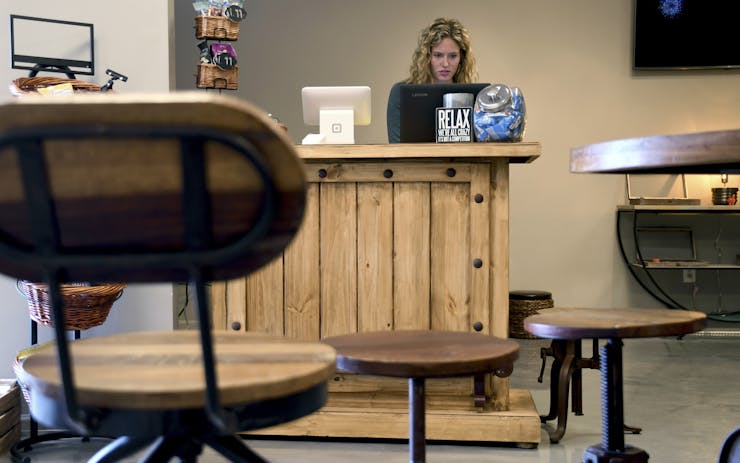DENVER (AP) — Owners of a Colorado business seeking to be among the nation’s first legal marijuana clubs made an initial public pitch to city officials on Friday, laying out their plans to prevent underage and otherwise illegal use at the site.
The business owners reiterated their plan to charge an entry fee to the space where customers can vape or eat marijuana products.
The space is already open but is only selling coffee and pre-packaged snacks for now.
“I've had numerous conversations with the owners and we're really pleased to have them in the community”
City officials put specific focus on how the business will train employees to prevent anyone underage from entering, keep customers from distributing marijuana and responding if someone has over-consumed.
No opponents of the business spoke during the two-hour hearing and a representative for the Denver neighborhood where the business is located asked the city for approval.
“I have visited the facility, I’ve had numerous conversations with the owners and we’re really pleased to have them in the community,” said Aubrey Lavizzo, a member of the La Alma Lincoln Park Neighborhood Association.
One of the owners runs a marijuana store next to the coffee shop. The co-owner also is a manager at that store. Neighbors are familiar with them and have no complaints about their marijuana retail business, Lavizzo said.
Rita Tsalyuk, one of the Coffee Joint’s co-owners, said they understand a license requires scrutiny.
“We want to be a good face for the community and the industry,” she said. “We’re trying to make it as perfect as it can be.”
A Denver attorney who oversaw Friday’s hearing will make a recommendation to the city’s top licensing regulator, who has the final say on whether to grant the license.
It’s not clear how long that process will take, but the marijuana industry in Denver and elsewhere is watching closely.
Colorado law doesn’t address cannabis clubs but bans public use, including outdoors. In some cities, unregulated clubs are tolerated, while others operate secretly.
Other states with legal marijuana are at a standstill for developing rules governing places to consume cannabis products, including Alaska, where state regulators delayed discussion of rules for retail shops until spring.
Denver voters approved the clubs in a 2016 ballot measure, but it took nine months for the city to start accepting applications. Advocates have complained that state restrictions preventing cannabis use at any business with a liquor license and the city’s own rules unfairly limited potential locations for the clubs.
For instance, the city required cannabis clubs to be twice as far from schools and anywhere else children gather as liquor stores.
The businesses cannot sell marijuana products; customers would have to bring their own.
Denver has received two formal applications but city officials expect more. The second application, which was submitted this week, proposes a cannabis spa where customers can take yoga classes or receive massages with marijuana-infused lotions or oils.





